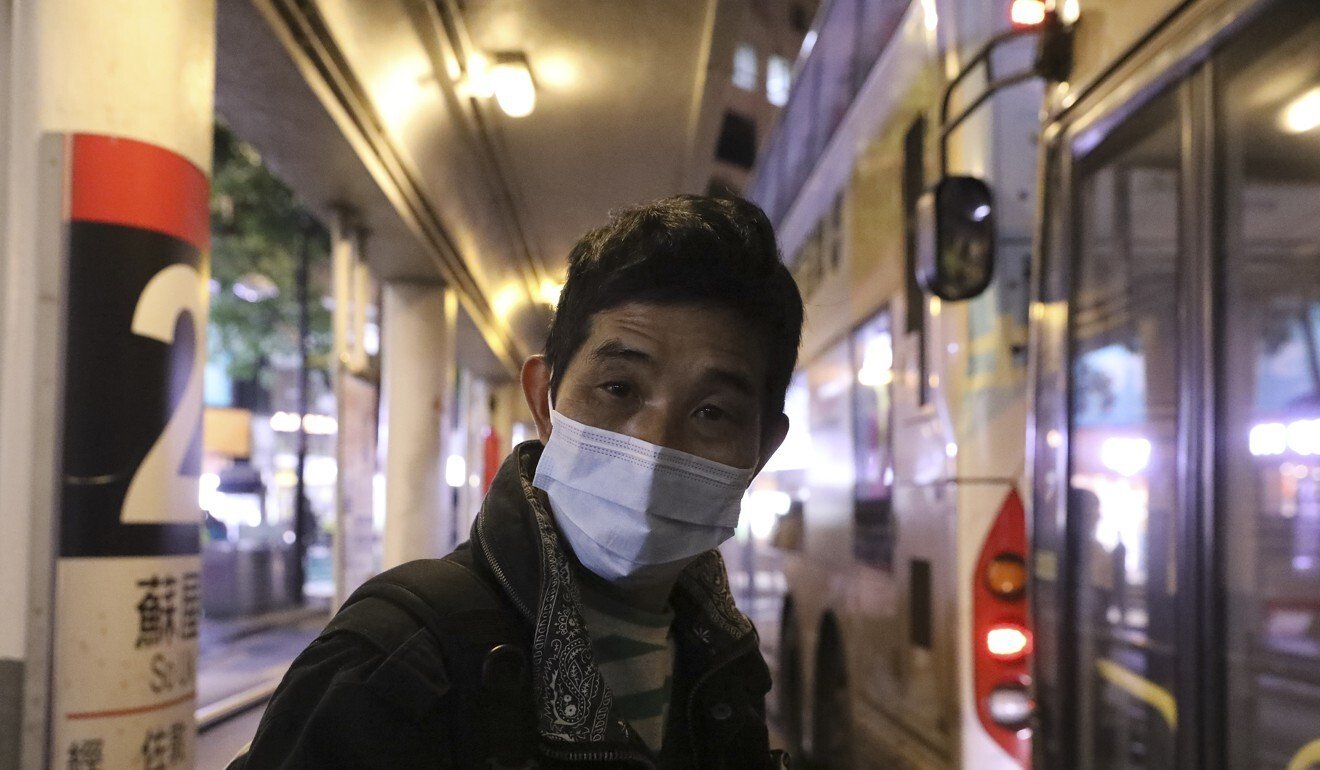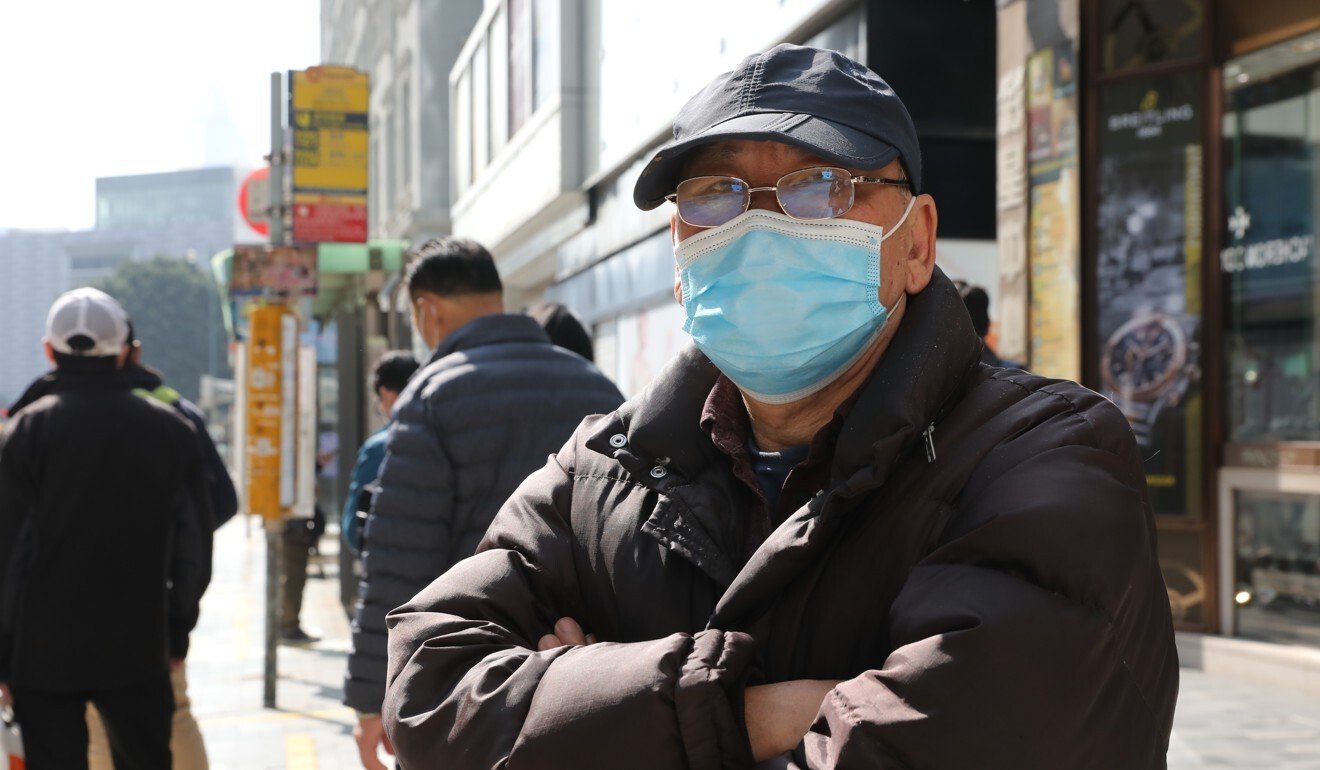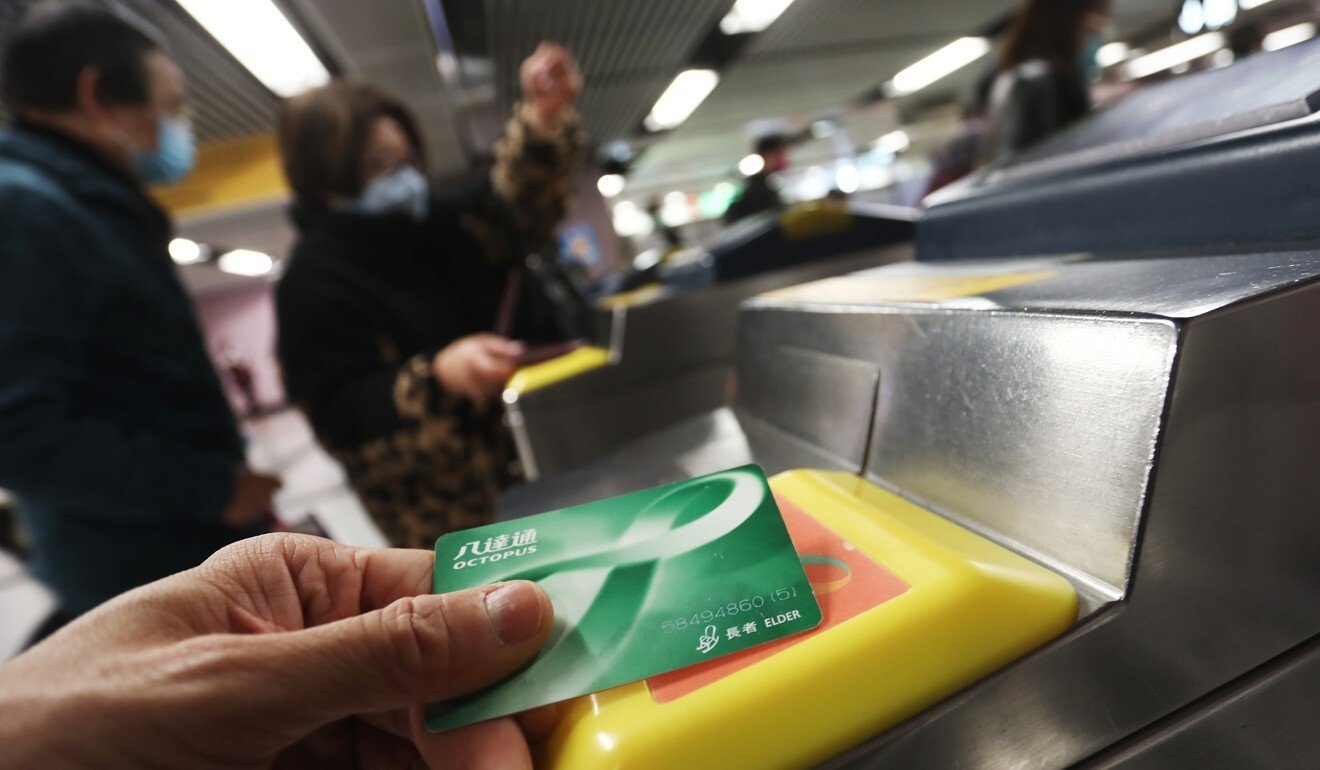
Hongkongers are abusing the HK$2 ride scheme – and elderly will pay the price
Retired driver Mak Nam, 63, looked forward to spending less on public transport after Hong Kong leader Carrie Lam Cheng Yuet-ngor announced early last year that subsidies for elderly residents would be extended to everyone from age 60.
“I could save a lot on transport,” said the widower with no children, who lives on social welfare and takes on part-time work.
Now he is disappointed that the scheme, which allows those over 65 to pay a flat HK$2 per ride on designated public transport, will not be extended to younger seniors for another year.
Labour and welfare minister Law Chi-kwong announced last month that the plan would be deferred so about 600,000 eligible residents aged 60 to 64 could get personalised Octopus cards bearing their name and photograph.
He said the new cards were needed to prevent abuse of the subsidy scheme. Residents aged 65 and above will also have to get new travel cards by 2024. Anonymous Octopus cards for the elderly currently can be bought and used by anyone, although those caught abusing the scheme can be fined or prosecuted.
Mak, who lives in Chungking Mansions in Tsim Sha Tsui, said the HK$2 scheme would allow him to go out more often to look for work or meet friends.
“I have many friends who live in the New Territories, but the high transport fare of about HK$20 to HK$30 per trip keeps me from seeing them,” he said.
While some like Mak are unhappy that the government has postponed the change, others have criticised the high cost of subsidising fares for the elderly and asked whether all those over 60 deserve help when many are still working.
A boon to those who qualify
The subsidy scheme introduced in 2012 allows those aged 65 and above, as well as residents with disabilities, to pay HK$2 per trip on the MTR, franchised buses, ferries and green minibuses.
It was meant to help build a caring and inclusive society by encouraging those eligible to be more active in the community.
Law announced last month that with its extension to those over 60, the scheme would also cover red minibuses and ferry services to outlying islands and trams, though elderly visitors and tourists would no longer be eligible.
The number of eligible users in Hong Kong over 65 has risen by over a third from 980,000 in 2012 to 1.32 million in 2019 and is expected to hit 2.16 million by 2031.
In 2018, eligible riders made an average of 305 journeys at HK$2 per ride, a total of more than 435 million trips. That meant an average monthly savings of HK$69 for each elderly participant, and HK$141 for each disabled person.

The number of discounted trips is expected to rise to about 1.2 billion when the scheme is expanded to include those aged 60 to 64.
Public transport operators are reimbursed by the government for the seniors’ discounted fares that exceed rebates offered by the operators themselves. The bill reached HK$1.3 billion in the 2019-2020 financial year, and is expected to rise to about HK$3 billion by 2025-2026.
Eligible seniors say they have benefited greatly from their HK$2 rides.
Ann Hon, 67, a part-time cleaner living in Tai Kok Tsui, recalled what it felt like when she became eligible two years ago: “It felt like I received a pay rise.”
In the past, it cost her about HK$23 a day to commute to Sham Tseng for work, but the subsidy now saves her a few hundred dollars a month.
The flat-price ticket allows her to meet friends on Hong Kong Island regularly for tea or coffee, and to go shopping with her 80-year-old husband without worrying about transport costs.
“I often go to Sham Shui Po to buy food,” she said. “In the past, when I was not eligible for the HK$2 scheme, I would scrimp by taking 30 minutes to walk home instead of taking the bus. Now I ride whenever I like.”
Quentin Cheng Hin-kei, spokesman for the commuter concern group Public Transport Research Team, said the scheme was justifiable as a way to help elderly Hongkongers.
“Over the years, there have only been fare rises but never fare reductions. The fare burden is increasingly heavy for the elderly,” he said.
Still, he felt the subsidy was only a “consolation prize” that did not make up for the lack of comprehensive welfare policies for elders who needed help.

Michael Tang, a former chef who lost his job last March and slept in the street before moving to a shelter in Jordan, said: “It seems that government officials have no idea about the hardships of the underprivileged, such as the homeless.”
He has been doing odd jobs at container terminals, and said his transport expenses could be as much as HK$100 per day when he travelled to remote port areas in Kwai Chung or Tsing Yi.
Tang, who is single and turns 60 in April, said he was looking forward to being eligible for the HK$2 flat fares because it would make a big difference to his earnings. Working three days a week, he takes home about HK$4,000 each month, compared with HK$22,000 a month in the past.
“Even though I earn much less now, having a job is still better than being jobless. With the HK$2 scheme, I could go around freely to look for work and take vocational training courses,” he said.
‘Absurd and unsustainable’
Despite the government’s good intentions in extending the subsidy scheme to those who have turned 60, the move triggered a debate over the long-term financial impact given the city’s ageing population.
According to a government-commissioned consultancy report, extending the scheme to the 60-64 age group would result in the cost to the government increasing about sevenfold – from HK$1.2 billion in 2018 to HK$8.6 billion in 2031.
That means the percentage of the city’s social welfare budget devoted to the discount would grow from 1.6 per cent to 5.3 per cent over the period.
Ng Wai-tung, a community organiser for Society for Community Organisation (Soco), a non-governmental group, supports extending the scheme anyway.
He pointed to the rising unemployment rate, which hit a 16-year high of 6.6 per cent in December, and said those over 60 were at a disadvantage in finding jobs. The latest jobless rate for those aged 60 and above was 5.4 per cent.
“The HK$2 scheme could motivate them to look for work,” he said.
But economist Andy Kwan Cheuk-Chiu is unconvinced that those aged 60 to 64 deserve the transport subsidy, not least because many still have jobs.
“This is absurd and unsustainable, as it will only impose an ever-rising financial burden due to the ageing population,” said the director of ACE Centre for Business and Economic Research.
He suggested instead that the government put about HK$400 million (US$51.5 million) into offering the younger group of seniors free vocational training with living allowances.
“These people face a growing need to upgrade their skills to cope with the economic restructuring. The government should spend the money on helping them find jobs and spurring the economy,” he said.

Time to check abuse
After almost a decade of offering older Hongkongers HK$2 rides, it is clear that there are people who abuse the scheme.
The main reason is that there is nothing to distinguish the discount cards for the elderly, and anyone can buy a card without providing proof of identity or age.
In delaying the extension of the discount scheme so those aged 60 and above will get Octopus cards with their names and pictures on them, minister Law said that, at present, it was easy for residents to buy several cards for ineligible family members or visitors to use.
In 2019, about four million Octopus cards meant for those over 65 were issued, even though there were only 1.32 million people in that age group in Hong Kong that year.
The consultancy report also noted that the risk of abuse of anonymous cards intended for the elderly “could be quite high”.
Earlier this month, Li Wei, an assistant professor at Chinese University, was caught by MTR staff using an Octopus card meant for a passenger over 65. She was made to pay a surcharge and could still face a summons.
The rail operator issued 13,646 surcharge notices to those caught abusing the HK$2 scheme last year through November, more than twice the 6,659 cases in 2017.
It said it had a 180-strong team checking for fare evaders, and warned that those caught abusing the scheme could face prosecution if they refused to pay the surcharge. Most pay the fine, usually HK$500.
To prevent the cost of the discount scheme from ballooning, Law said the HK$2 flat rate could be adjusted every five years to HK$2.50 or HK$3 per ride in the future.
However, some expected the introduction of personalised Octopus cards to curb abuse of the scheme and dismissed concerns that providing the elderly the discounts would be a financial burden.
In fact, some believe the government could do even more.
“The ideal way is to offer free rides on public transport for those aged 65 or above, like in Shenzhen and Guangzhou, in recognition of their contributions to society,” said Simon Lee Siu-po, co-director of the international business and Chinese enterprise programme at Chinese University.
He pointed out that with its 75 per cent stake in the MTR Corporation, the government received dividends of several billion dollars every year.
“The government doesn’t need to worry about the rising cost of the scheme. It can use the billions it receives from the MTR Corp every year to cover expenses for the elderly,” he said.
As for those in the 60-64 age group, he said that since many of them were still working, the government could offer them a discount on fares instead of the flat fee.
Soco’s Ng said the government also did not have to bear the entire cost itself and could ask transport operators to share in subsidising fares for the elderly.
“Hong Kong’s transport operators never know how to reduce fares, even when fuel costs go down,” he said.
Quentin Cheng said it would be fairest to offer the elderly discounted fares rather than charging a flat HK$2.
“Some people might abuse the scheme by taking more rides than necessary. A percentage discount could bring the cost down and prevent excessive use of the scheme,” he said.











